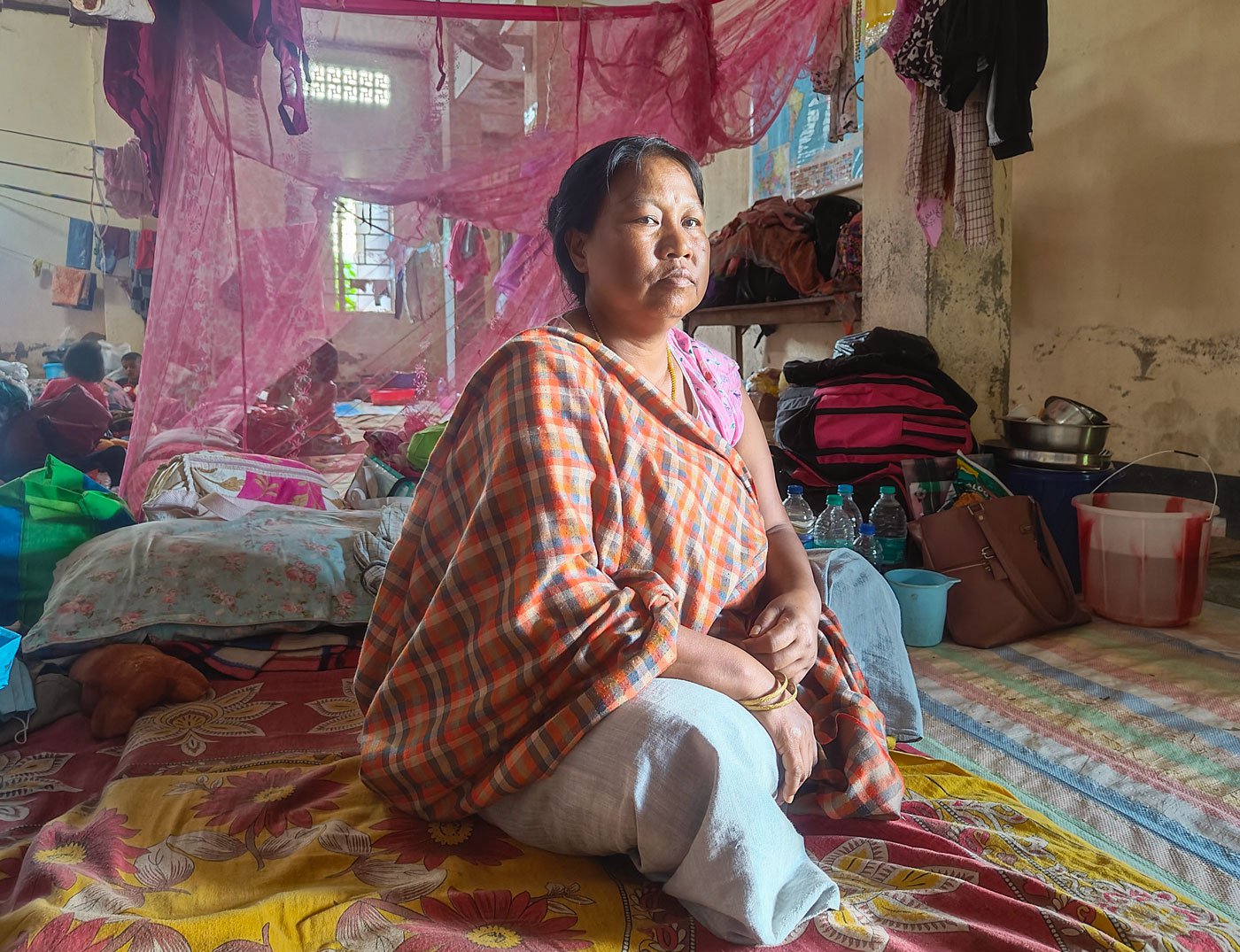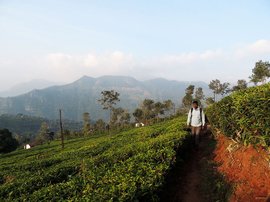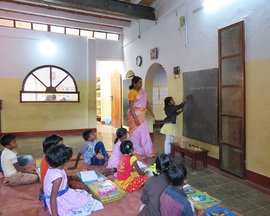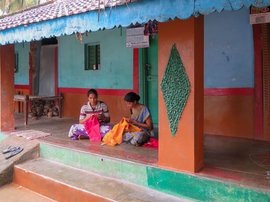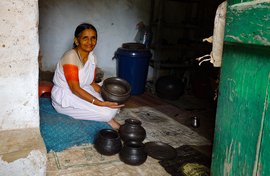For Khuma Thiek, the mere thought of going back to his village of Langza in Manipur’s Churachandpur district sends shivers down his spine. Langza had been home to the 64-year-old farmer for 30 years. It was a place of warmth and familiarity where he raised his son David, packed him lunches for school, and where they worked together on their paddy fields. It was also the place where he became a grandfather for the first time. Langza was Khuma’s world. A world he was content with.
Until July 2, 2023.
That day violently erased a lifetime of memories and left Khuma with an image he is not able to get out of his head. It’s an image that doesn’t let him sleep. It’s an image that doesn’t let him stay up. It’s an image of his son’s severed head placed atop a bamboo fence right at the entrance of Langza.
Khuma’s home state of Manipur in India’s northeast region has been embroiled in an ethnic conflict since May 3, 2023. In late March, the High Court in Manipur awarded the dominant Meitei community “tribal status” that gives them access to economic benefits and quotas for government jobs. It also allows them to purchase land in the hilly areas where Kuki tribes are concentrated. The decision was later stayed by the Supreme Court.
The Kuki community – 28 per cent of the state’s population – believe the decision would have strengthened the Meitei’s stronghold over the state in which they already make up 53 per cent of the population.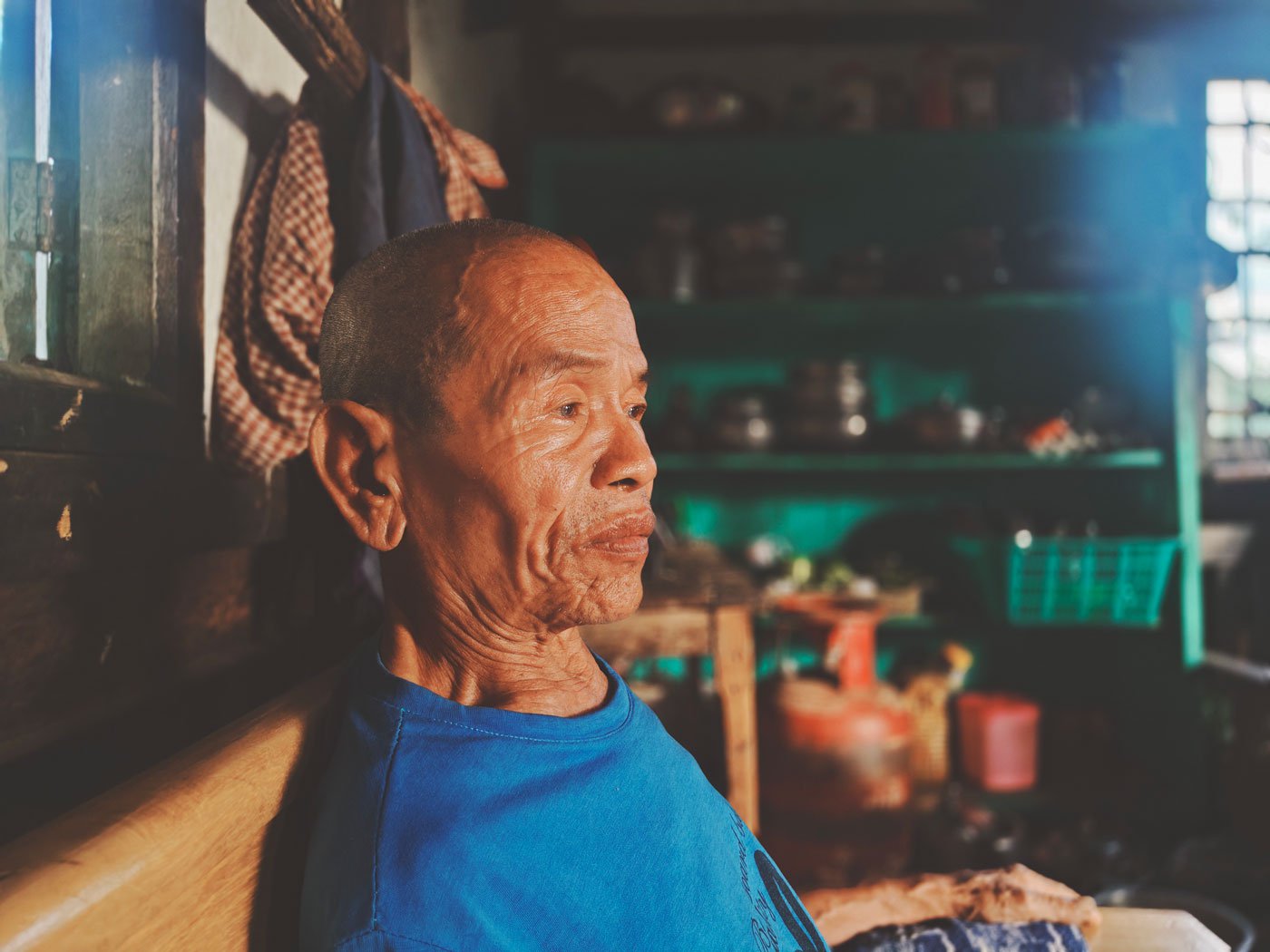
Khuma Theik at his brother’s house, after his own home in the Kuki village of Langza was attacked and his son violently killed
On May 3, some from the Kuki community staged a rally in Churachandpur district to protest the court ruling.
After the protest, an Anglo-Kuki War memorial gate — marking a Kuki rebellion in 1917 against the colonial British rule in Churachandpur was set on fire by Meiteis. This triggered widespread riots that killed 60 people in the first four days.
It was the start of a wildfire of violence and mayhem that would spread across the state, with barbaric murders, beheadings, gang rapes, and arson. So far, about 190 people have been killed, and over 60,000 have become homeless – most of whom are Kukis. The latter have accused the state and police of abetting the Meitei militants in this civil war.
The lack of trust between the two communities has compelled them to form their own village defence forces, guarding against the enemy that was once a neighbour.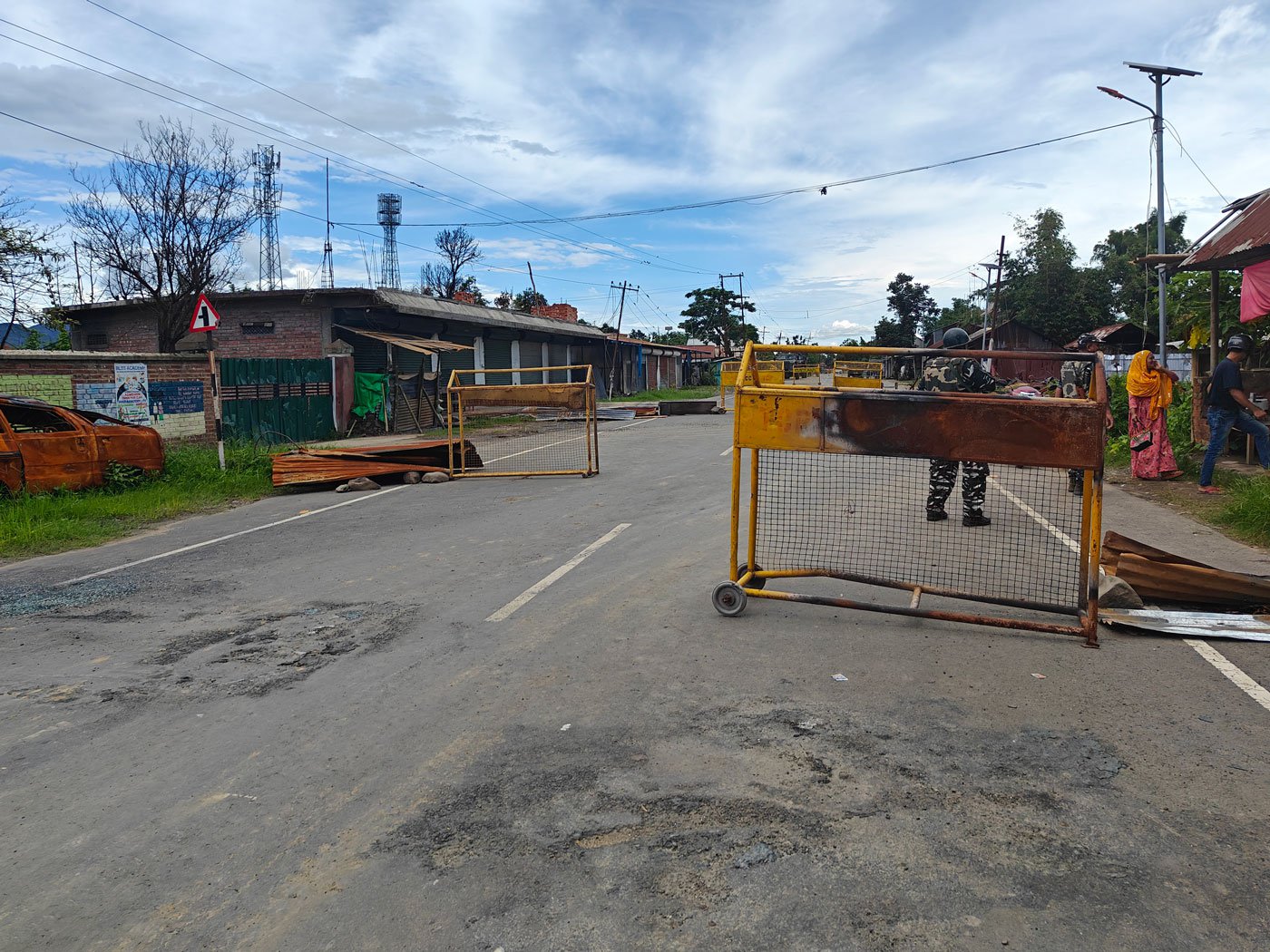
Barricades put up by paramilitary forces along the borders of Imphal and Churachandpur, Manipur
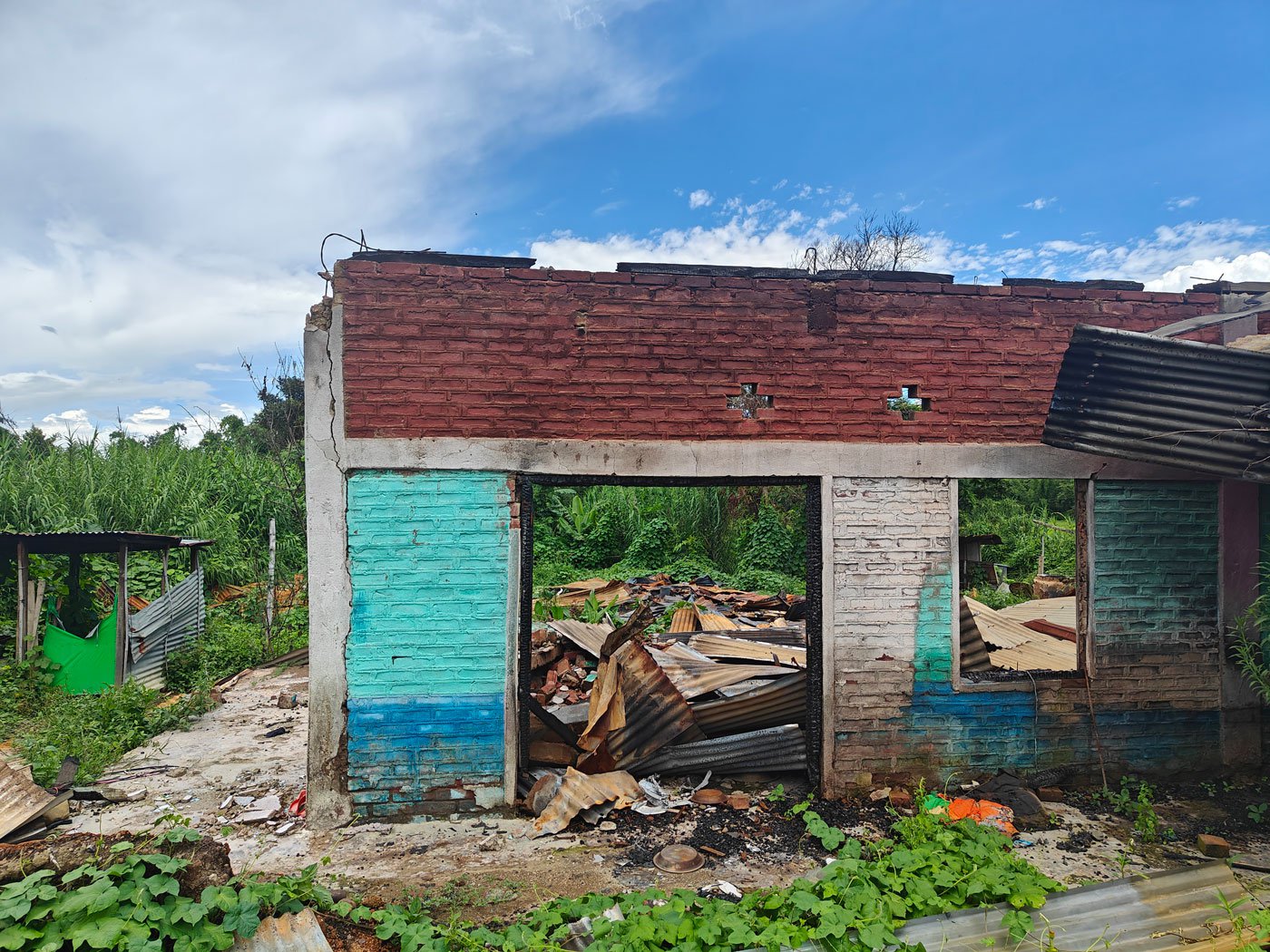
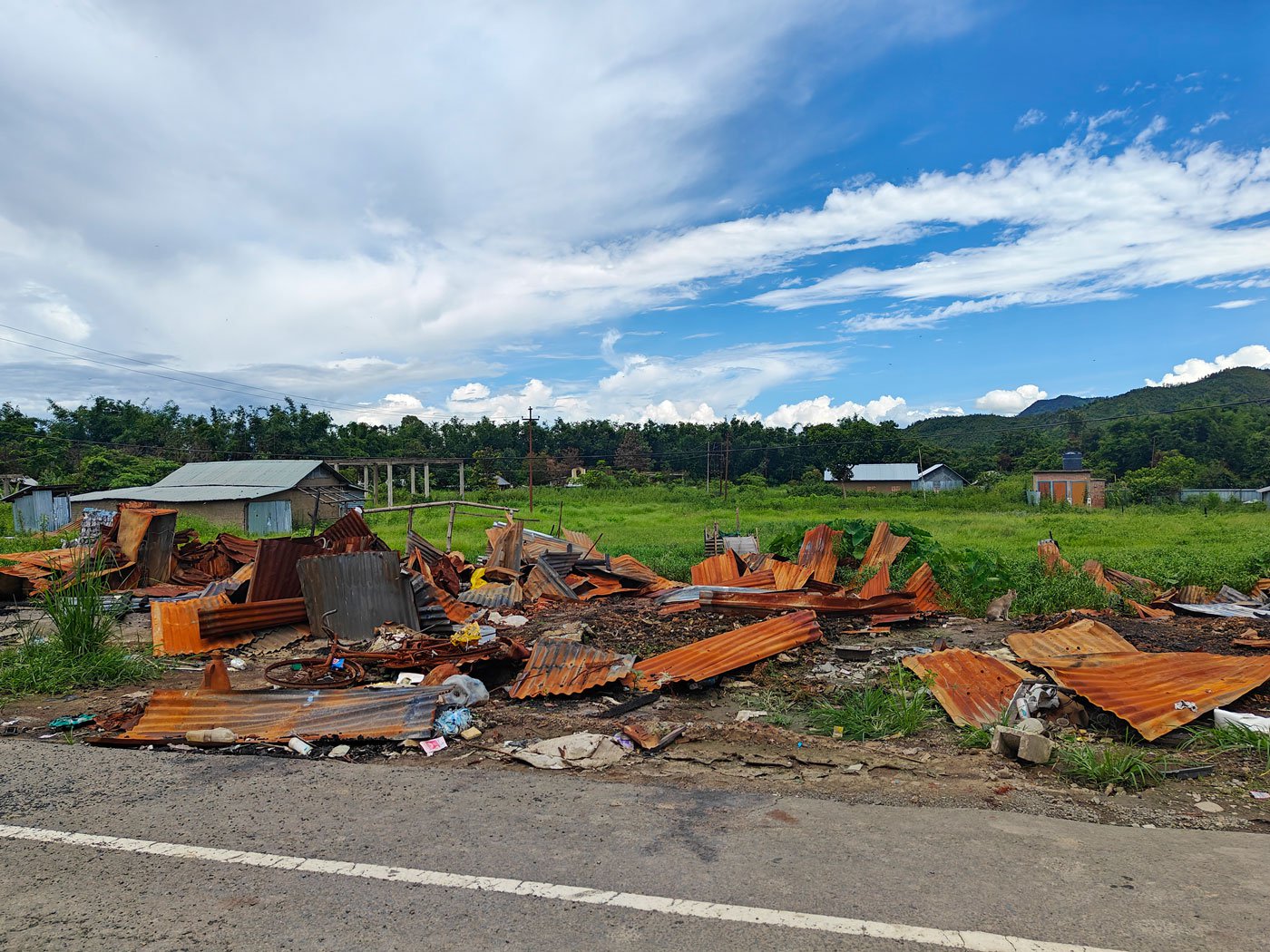
A home (left) and a shop (right) burned to the ground near the border of Imphal and Churachandpur, Manipur
In the wee hours of July 2, Khuma’s son, 33-year-old David was among those guarding the Kuki village of Langza when it was suddenly attacked by an armed Meitei mob. Langza is located on the border of Kuki-dominated Churachandpur district and Meitei-dominated Imphal valley, making it a volatile location.
Realising the residents didn’t have much time, David frantically rushed back and told people to run for their lives while he would keep the armed mob at bay. “We gathered whatever little we could and ran for the deeper areas in the hills where our tribes are concentrated,” says Khuma. “David promised he would be on his way soon. He had a scooter.”
David and the other guards had bought enough time for his family to escape. But not for himself. He was chased down before he could get on his scooter, and beheaded in the village. His body was cut into pieces and burnt.
“I have been traumatised ever since that day,” says Khuma, who now lives with his brother deeper in the hills of Churachandpur district. “I often wake up in the middle of the night shivering. I haven’t been able to sleep properly. There is a photograph of a man walking with my son’s chopped head. I can’t get it out of my head.”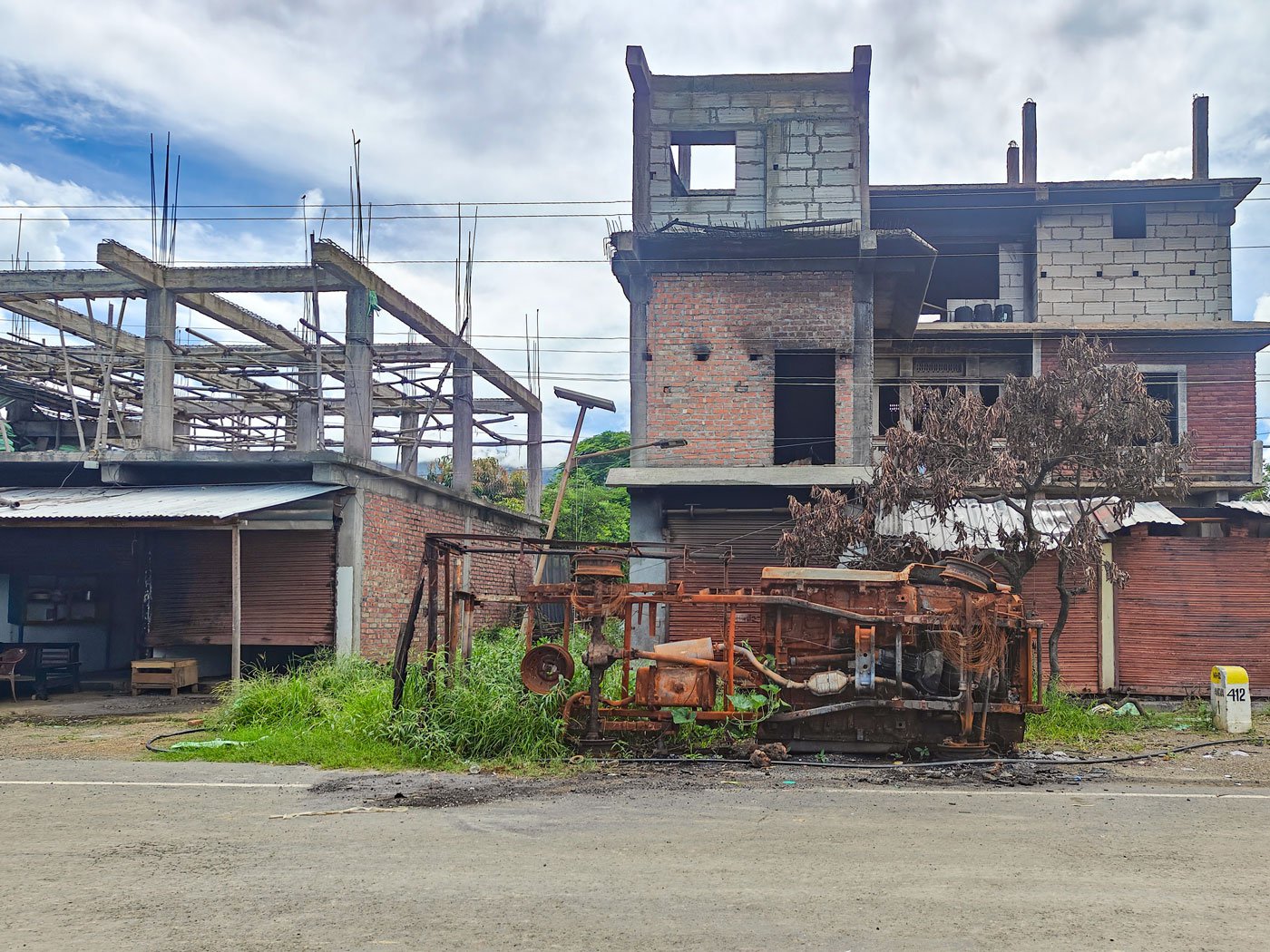
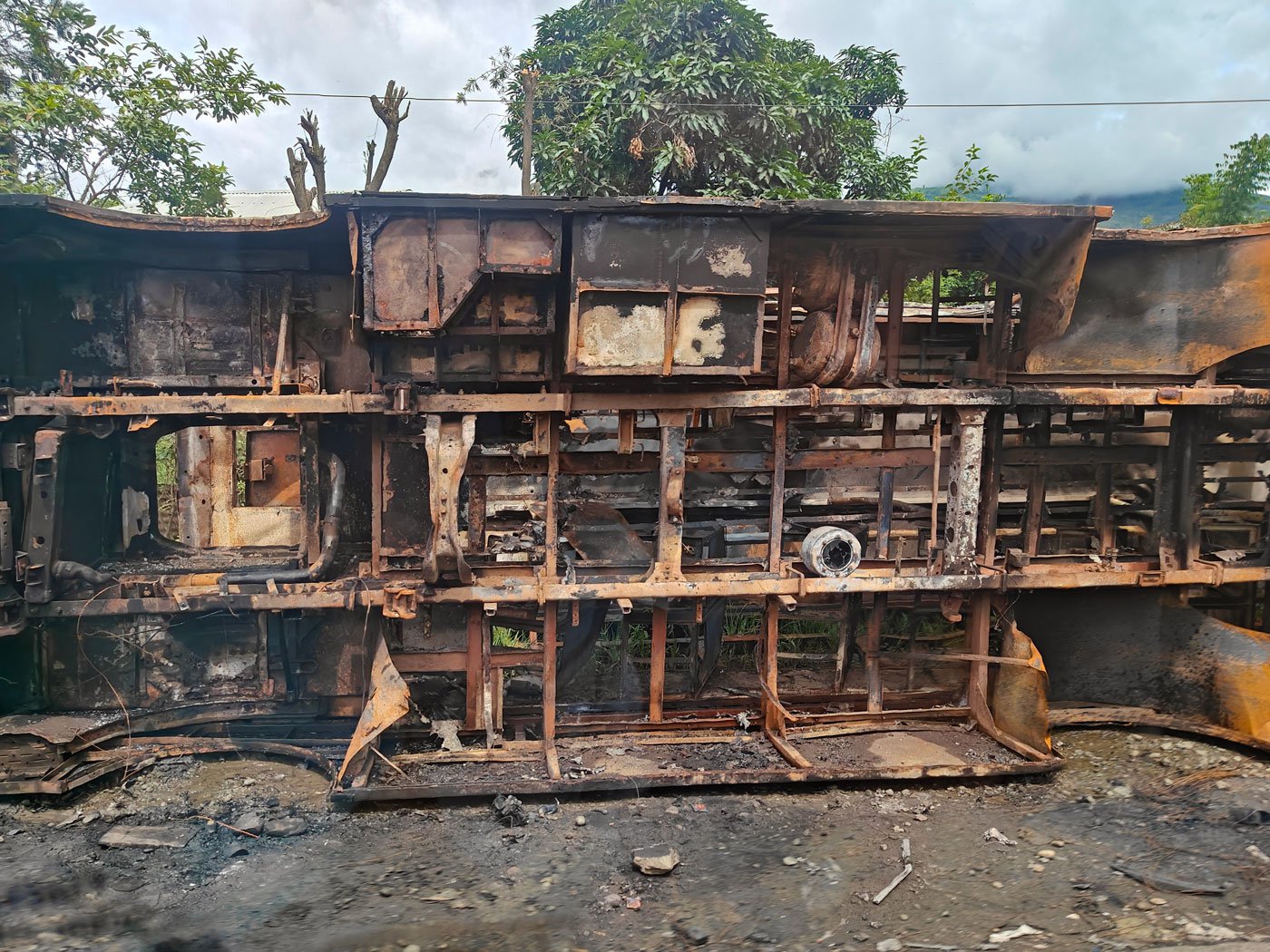
The charred remains of vehicles set on fire near the Churachandpur-Imphal border
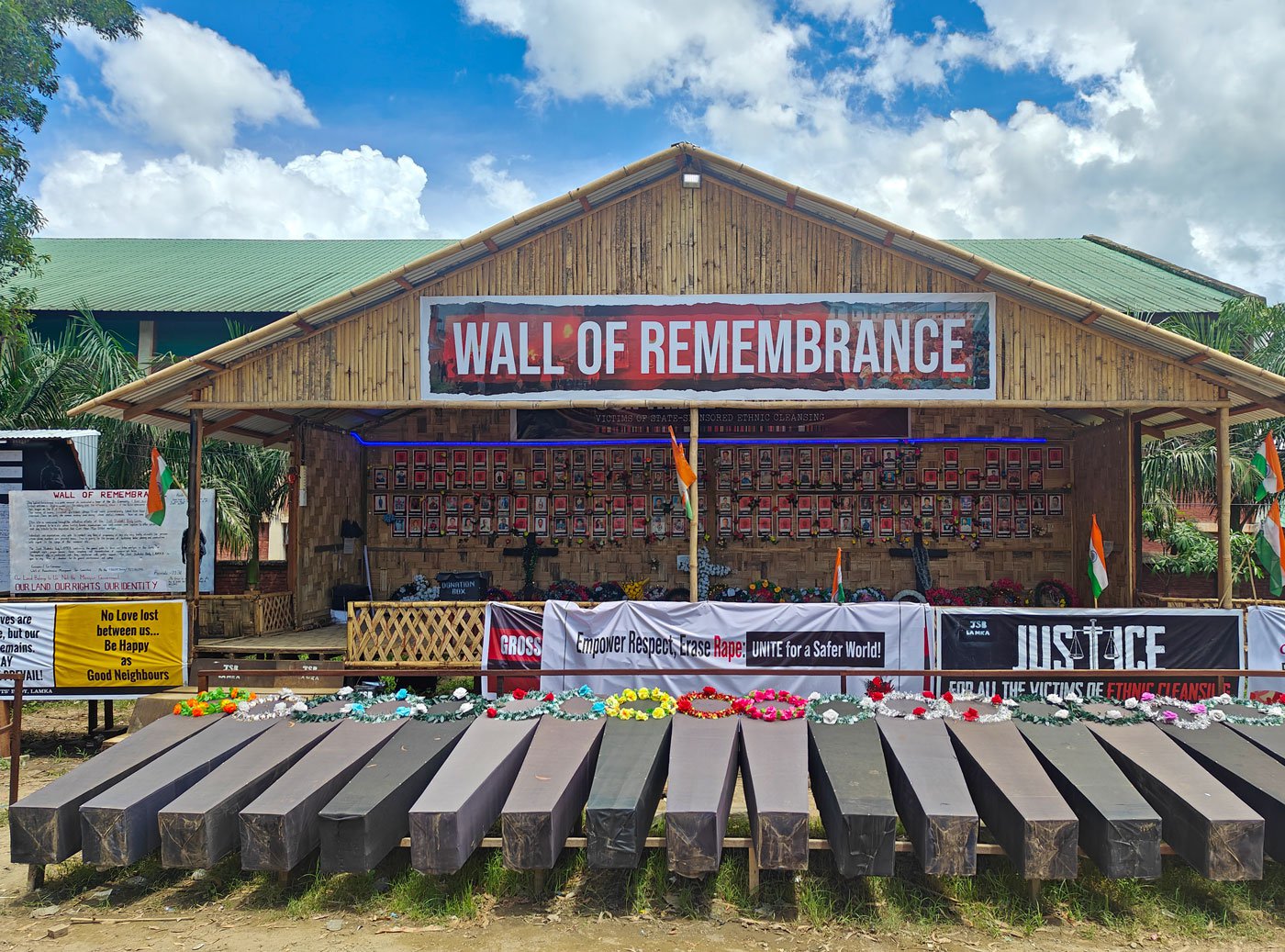
Wall of remembrance is a memorial made by Kukis in Churachandpur to remember their loved ones who died in the conflict. The empty coffins are placed to signify that they can’t get to the hospitals in Imphal to claim the bodies and conduct funerals
Across Manipur, there are thousands of people like Khuma, who have been displaced. They do not recognize what they once called home. Struggling with a lack of resources and traumatic memories, victims of the civil war have either been sheltered by generous relatives or have been forced to take refuge in relief camps managed by charities.
In the village of Lingsiphai in Lamka tehsil of Churachandpur district, Boishi Thang, 35, has taken shelter in a relief camp with four of her kids aged 3 to 12 after her village of Hao Khong Ching in the district of Kangpokpi came under attack on 3 May. “The Meitei mobs had torched three of the nearby villages and were coming to get us,” she says. “We didn’t have a lot of time so children and women were asked to leave first.”
Her husband Lal Tin Thang, 34, stayed back with other men in the village, while Boishi escaped deeper into the forests to a Naga village. The Naga tribes sheltered her and the kids, where she spent the night waiting for her husband.
One of the men from the Naga community offered to go to her village to check if Lal Tin Thang was safe. But he returned with the news that confirmed Boishi’s worst fear. Her husband was caught, tortured and burnt alive. “I didn’t even have time to grieve or process the death of my husband,” says Boishi. “I was preoccupied with keeping my kids safe. The next morning, Nagas dropped me off at a Kuki village, from where I came to Churachandpur. I don’t think I will ever return home. Our life is more important than our livelihood.”
Boishi and her husband had a five-acre paddy field in the village, which sustained their household. But she can’t imagine going back to it. Churachandpur is a safe place for the Kukis currently because there are no Meiteis around. For a woman who had lived her life near Meitei villages, Boishi today panics at the thought of mingling with them. “Our village had several Meitei villages around it,” she says. “They ran the bazaars, and we were their customers. It was an amicable relationship.”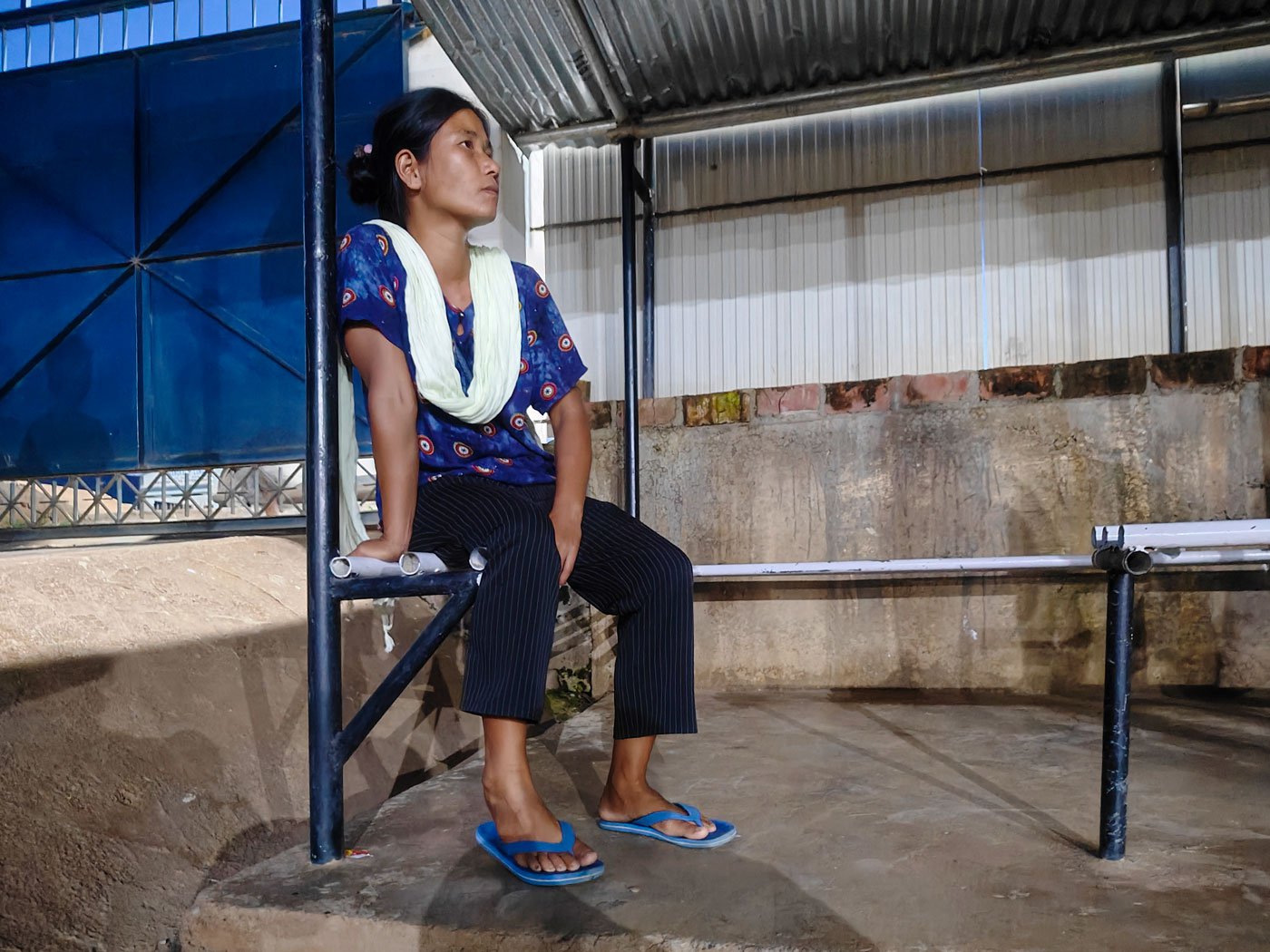
Boishi at a relief camp in Churachandpur where she has taken shelter along with four of her children aged 3 to 12, after her village of Hao Khong Ching in the district of Kangpokpi came under attack
But today, there is complete breakdown of trust between the two communities in Manipur. The state is partitioned with the Meiteis in the Imphal valley, while Kukis live in the hilly districts surrounding the valley. Venturing into each other’s territory is a death sentence. Kuki areas in Imphal are completely deserted. Meiteis in Kuki-dominated districts have been driven out of the hills.
At a Meitei relief camp in Imphal, Hema Bati Moirangthem, 50, recalls how she escaped with her paralysed brother when her town of Moreh was attacked by a Kuki mob. “My one-room house was also torched,” she says. “My nephew had called for the police. We had to hope they arrived before we were burnt to death.”
The Kuki mob had swarmed the town of Moreh – on the India-Myanmar border – and Hema couldn’t run with her brother due to his inability to move. “He told me to go but I couldn’t forgive myself if I did that,” she says.
For 10 years, the three of them had been each other’s home after Hema’s husband died in an accident. It was never an option to sacrifice one for the safety of others. Whatever had to happen, it would happen to all three of them.
When the police arrived, Hema and her nephew picked her brother up and brought him to the police car through their burning home. The police dropped the three of them to Imphal – 110 kilometres away – to safety. “I have been at this relief camp since then,” she says. “My nephew and brother are with one of our relatives.”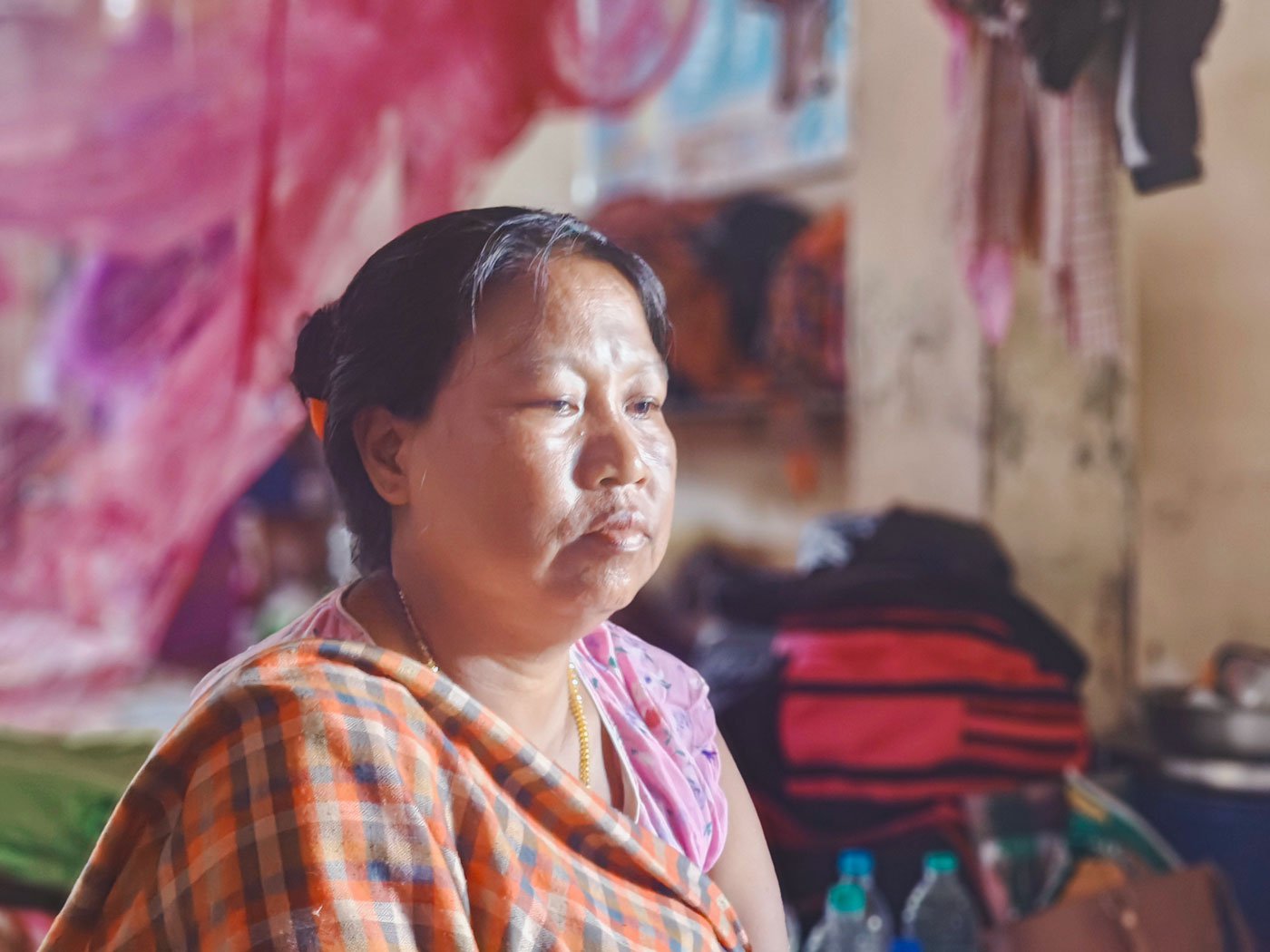
Hema is now at a relief camp in Imphal. She escaped with her paralysed brother when her town, Moreh was attacked by a Kuki mob
Hema, who ran a grocery store in Moreh, is now dependent on charity for survival. She sleeps in a dorm-like room with 20 other strangers. She eats food out of a common kitchen, and wears donated clothes. “It is not a great feeling,” she says. “Even after my husband died, I have always been self-sufficient. I have looked after my brother and myself. I don’t know how long we have to live like this.”
Civilians across Manipur are slowly coming to terms with losing their homes, their livelihoods and their loved ones.
For Khuma, even though he is no stranger to losing a loved one, the death of David is hard to accept. About 30 years ago, he lost his daughter to cholera when she was two. His wife died of cancer 25 years ago. But David’s death has created a much bigger void – the young man was all he had.
Khuma had raised David on his own. He had attended the school’s parent-teacher meetings. He had advised him on which college to enrol in after he graduated from high school. He was there when David first told him he wanted to get married.
After all these years of living with each other, their family had finally begun to grow once again. David got married three years ago and had a child a year later. He imagined playing with his grandkid as a senior citizen and helping raise him. But the family has been driven apart again. David’s wife and child are with her mother in another village. And Khuma is with his brother. All he has is memories. Some he wants to hold onto. One he wants to get rid of.